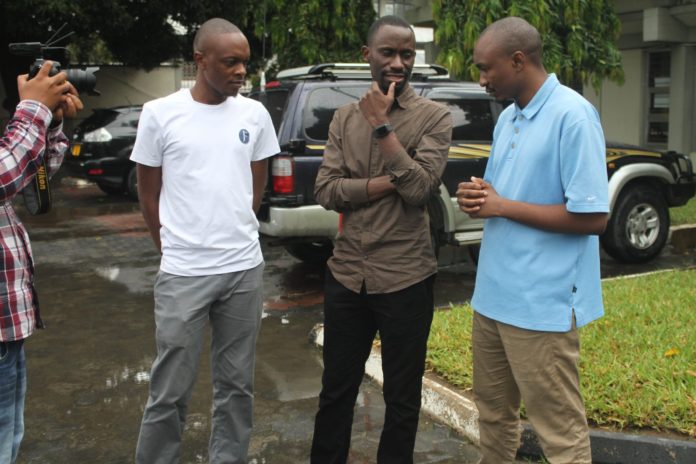Dar es Salaam — A Tanzanian court on Tuesday, November 17 sentenced a well-known media entrepreneur to one year suspended sentence after he was found guilty of obstructing police investigations.
Maxence Melo, the co-founder of JamiiForums—a popular whistle-blower website in Tanzania, and the winner of New York Based 2019 CPJ International Press Freedom Award, was charged for obstructing justice by refusing to reveal the identities of anonymous users disclosing suspected Tanzanian corrupt public officials.
Controversial Cybercrime Law
The defendant was charged under a controversial 2015 Cybercrimes Act, which human rights campaigners say was enacted to promote the government’s desire to silence critical voices in one of east Africa’s popular online chat rooms.
President John Magufuli, who has won the second and final term in office, promising to intensify the war against corruption and wasteful spending has come under strong criticism for undermining democracy stifling basic rights to opinion and expression.
One Year Suspended Sentence
Presenting the verdict, Huruma Shaidi a Resident Magistrate at Kisutu court, said the accused is convicted on similar charges of the cases which had been filed earlier. He acquitted him on conditions that the defendant would refrain from committing a similar offense within a year. The Magistrate also set free Melo’s co-accused Mike Mushi after the prosecutors failed to prove the charges against him.
The protracted case against Jamii forums’ founders is part of a series of police allegations that have been dragging since 2016.
In a similar case, Melo was sentenced to pay a fine of Tanzanian shillings 3 million (US$1,300) or to serve a jail sentence for one year. He paid the fine.
No Action Plan
Reacting to the verdict, Mello told reporters that he’s dissatisfied but respects the court’s decision.
“It is too early to know the next move, my lawyers will decide on our action plan for appeal,” he told reporters.
During the case, the prosecutors accused him of ‘intentionally and unlawfully’ concealing the identities of anonymous people who posted false information on the website.
The duo were charged for obstructing investigation contrary to Section 22(2) of the Cybercrimes law. The specific charges was refusing to cooperate with investigators who needed information about an anonymous JF Expert Member calling him/herself Fuhrer, who had alleged on the platform that Oil Com company was embroiled in tax evasion scam by illegally leasing and draining oil at the Dar es Salaam port. The company denied the allegations.
Vague Charges
In dramatic turn of events, the police were interested in knowing users’ information including IP and email addresses. With time the state changed the case and instituted new charges accusing the defendants of corrupting and distorting data in blatant violation of the law.
The accused also faced cybercrimes charges in two other related cases, including one accusing them of operating an unregistered website.
However, critics have criticized the government for failing in its mandate to investigate corruption allegations; instead, targeting whistle-blowers who assisted in exposing corruption.
Under the Cybercrimes law, anybody who publishes “false, deceptive, misleading or inaccurate” information on a website commits an offense and upon conviction can be jailed for three years or made to pay a fine of at least Tanzanian shilling 5 million or both.
A Trained Engineer
Melo, who is a trained civil engineer co-founded JamiiForums—a website that exposes corruption and help push for political accountability almost two decades ago.
Although the website has won global acclaim, it had put him at loggerheads with Tanzania authorities.
In 2008, Melo was arrested on accusation of terrorism. Although the charges were dropped it was not the end. Seven years later the east African country passed the controversial Cybercrime Act of 2015, which, critics say, authorities have been using to censor and limit criticism.
In a bid to comply with harsh online regulations, JamiiForums was shut down for 21 days. The whistle-blower website has since hired a legion of lawyers to review its editorial policy, strategies, and modus operandi so that it complies with government regulations.

